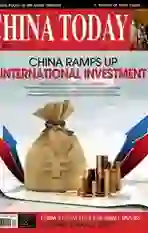The Pledge to Reform
2014-05-27
The annual National Peoples Congress (NPC) and Chinese Peoples Political Consultative Conference (CPPCC) took place in Beijing from March 3 to March 13 amid brisk, early spring weather. During the two sessions, Chinas development direction in domestic and diplomatic affairs was publicized. The new messages they conveyed made headlines in Chinese and foreign media, and projected a bright future for the country.
The government work report was undoubtedly the highlight of the meetings. Premier Li Keqiang, with his background in economics, ingeniously applied economic theories to Chinas situation with the aim to reduce institutional barriers and inject energy and vigor into the countrys economic and social development. Under his leadership, the government formulated specific and quantifiable reform targets.
In terms of administrative reform, the report proposed reducing government intervention, saving administrative costs, curtailing or delegating more administrative approvals to lower-level governments, and allowing the market to play a bigger role. Meanwhile, it called on the government to increase financial support for public welfare in areas such as health care, social security, pensions and education. By emphasizing both restraint and support, the government showed its determination to serve the people and reform its functions; also its resolve to give more leeway to private enterprises and individuals. Although tackling welfare issues will increase the governments financial burden, it also entails greater economic benefits. The report therefore proposes tapping into the consumption potential of the countrys more than one billion people, something possible only if those people feel their livelihoods are secure and supported by the state. Widespread spending on tourism, pensions and education is expected in the near future.
With regards to economic reform, the report put forward maintaining middle- to high-speed economic growth on the premise of guaranteeing job opportunities and anti-inflation. Under conditions of a sound economic operation, China will advance its economic restructuring and transformation of the economic development mode from one driven by investment and exports to one powered by consumption, raising economic efficiency through scientific and technological innovation. Furthermore, China will conserve energy, reduce emissions and tackle pollution to mitigate the negative effects of economic growth.
On the smog issue, Premier Li reiterated in the report that the central government will put environmental protection at the top of the agenda. As a developing country, Chinas process of industrialization and urbanization is still under way. Coal remains a major industrial fuel in China. There is consequently a long way to go in the process of emission reduction and pollution control. For that reason, the press conference on environmental protection came under the spotlight. Experts forecast that China needs more than 10 years to deal with the smog issue. They recommended using the market to control the consumption of resources and emissions, with the government playing a supervisory role.
As for the international communitys common concern about how a strong China will handle its relations with the outside world, Foreign Minister Wang Yi elaborated during a press conference on new ideas for Chinese diplomacy. He pointed out that the new approaches to dealing with majorcountry relationships relied on constructing a new model, that is, breaking the historical pattern of conflict and confrontation and finding a new path in the modern era that benefits all parties through win-win cooperation. Such measures also show Chinas sense of responsibility from within the international community.
A guideline for neighborhood diplomacy featuring amity, honesty, mutual benefit and inclusiveness was proposed. This demonstrates Chinas sincerity and goodwill toward its neighbors and its readiness to work with them to build a community of common goals. It also shows that China has become more open and accommodating.
A more balanced approach to upholding moral principles and pursuing interests was called for. China will give priority to moral principles when dealing with fellow developing countries and be more sensitive to their needs. This approach embodies the positive tradition of Chinas external exchanges and reflects the inherent nature of the socialist system. It has become an important banner of Chinas diplomacy.
These new diplomatic ideas and moves sent the following message to the world: China is committed to peaceful development, and hopes other countries will join it along this path. The Chinese Dream belongs to the Chinese people; but is also closely connected to the dreams of other nations.
HOU RUILI
